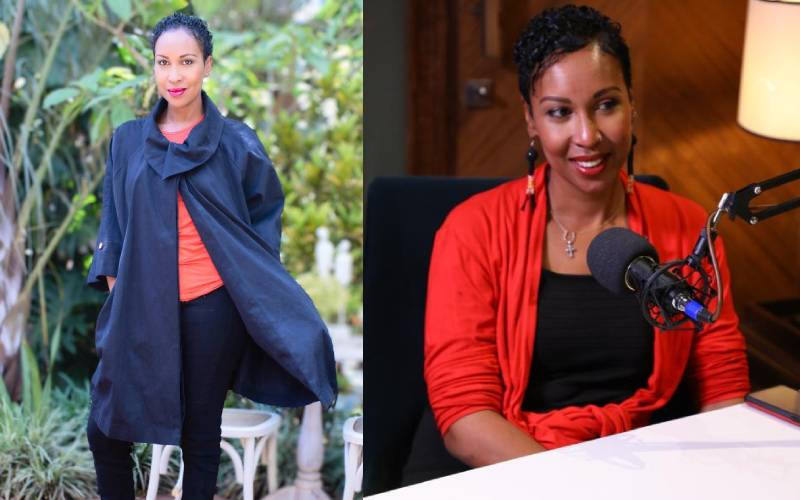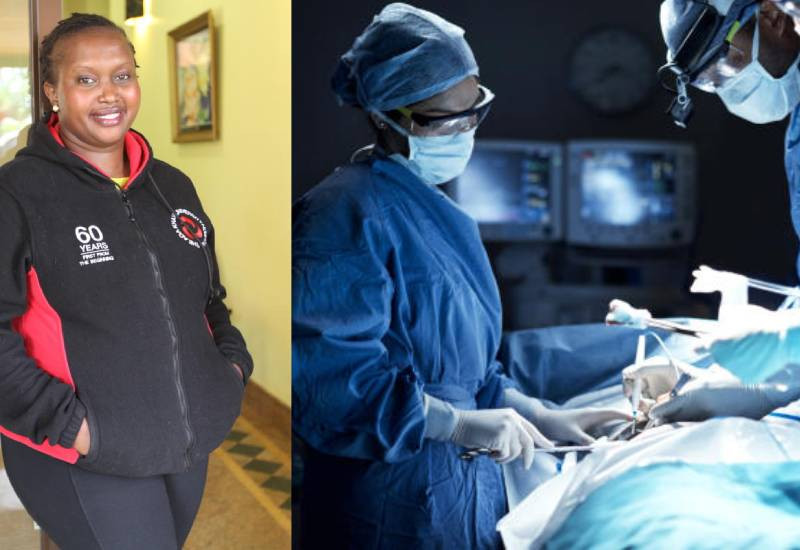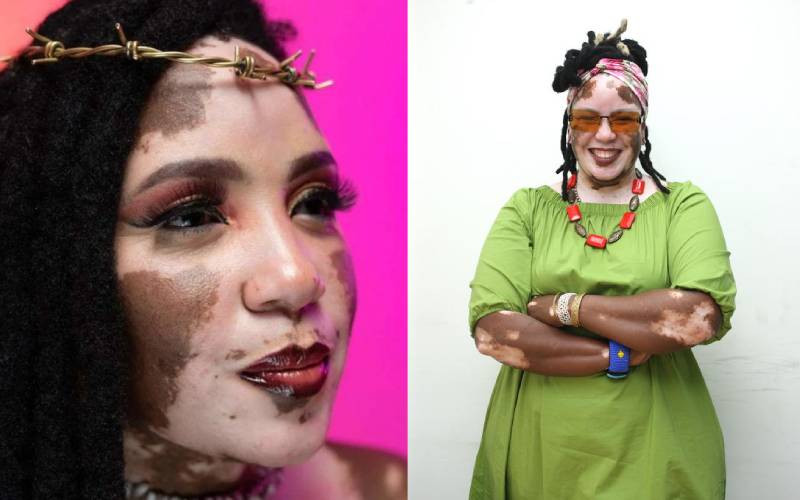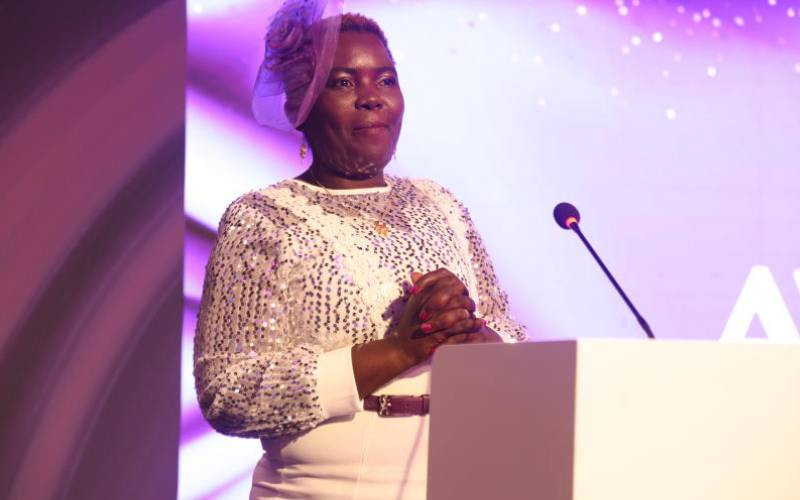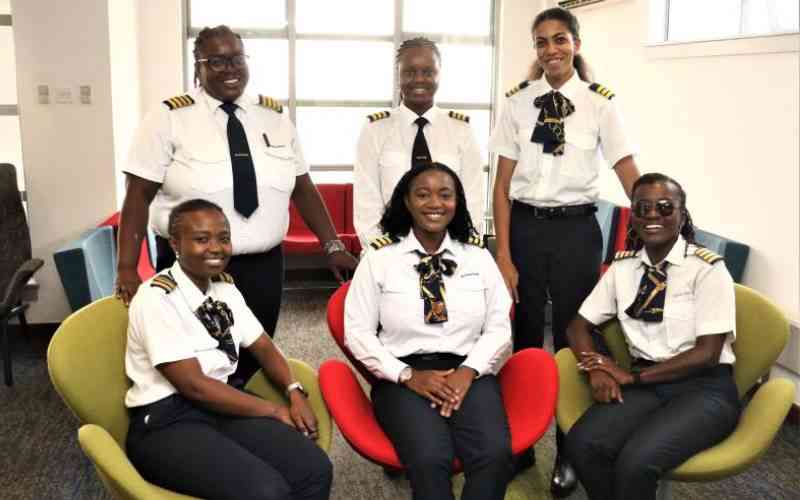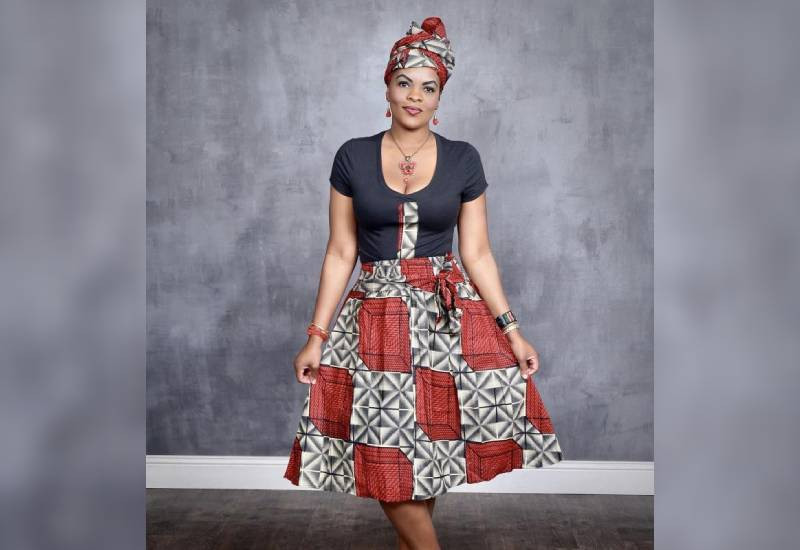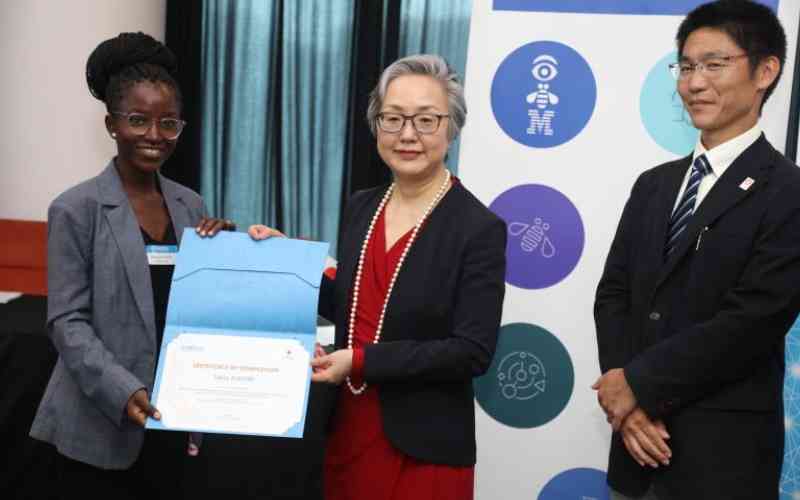
Long before equality, inclusion and diversity became common concepts, and women could actively demand for space in sectors dominated by males, there is a group that stood out. Their voices and deeds represented what their fellow women desired. There were many barriers that blocked them from reaching their goals, but they pressed on. They stand out in their various fields, including arts, research, politics, sports, entrepreneurship and human rights. Even though this list is not exhaustive, it samples out some of the pioneer women who became trailblazers at a time when they were constantly reminded that they needed to take a back seat. We look at their contributions in various fields and lessons they learnt as they charted the way for other women.
Prof Sheila Okoth: Research and academia

Prof Sheila Okoth loves science. She spends most of her days peering inside the microscope to study fungi in all its possible forms. As President of African Society of Mycotoxicology, she represents top researchers who are working on aflatoxins and other fungal toxins in Africa.
“There are people who hear me say that I major in fungi, and they think I live a very boring life. They do not know how much there is to learn about these microorganism and their impact not just in Agriculture, but in human life,” she says.
She is a researcher and a pioneer mycology professor at the University of Nairobi. For now her area of concentration is aflatoxin. She now boasts of managing an ISO certified laboratory at the university, and being in the steering committee of Partnership for Aflatoxin Control in Africa (PACA) that was formed by African Union and ratified by all African presidents to control aflatoxins in Africa.
Her passion for research started when she was a young girl studying at Ngiya Girls High school. Her strength was in sciences, at a time when it was a male-dominated field. She went to the University of Nairobi where she studied Botany, Zoology and Education and later did her postgraduate degree in Mycology.
She intensified her research after getting an internship with African Women in Agricultural Research and Development (AWARD) to go to South Africa.
She got a grant and came back with a machine that measures aflatoxins in grains.
She now uses the machine to do test for millers, organisations such as World Food Programme, other researchers and students.
Her research in aflatoxin has helped in understanding why there are many cases of poisoning in Eastern Kenya and her studies are now focused on finding seeds that are resistant to aflatoxin - one of the microorganisms that have been found to cause cancer.
She admits that being a female researcher and an active mother can be a tricky balance to achieve.
“I have learnt to say no. There are projects that I had to turn away from and choose to hang out with my children instead,” she says.
She says some of the things she has learnt about being in research are not to focus on her womanhood, but put her strength in her passion: research.
Mercy AdhiamboTabitha Karanja: Entrepreneurship

Tabitha Karanja, the CEO of Keroche Breweries, is an undisputed captain of industry. She takes pride in being a disruptor and for the liberalisation of the alcoholic beverages market in Kenya.
Any story about Tabitha Mukami Karanja that does not talk about her resilience is an incomplete story.
Tabitha, a 55-year-old mother of four, had to overcome insurmountable odds to steward the behemoth of business that is Keroche now from an upstart liquor manufacturing business aspiring to provide Kenyan drinkers with options to one of the most successful businesses in the country.
Lionesses of Africa, a global community of entrepreneurs, describes Tabitha as Africa's gender and monopoly buster.
In the 23 years since the company was established as a brewer targeting the entry level of a burgeoning liquor market, Tabitha, the founder, has battled in the corporate boardroom, court, and even parliament to keep the business afloat.
Hers is the glorified entrepreneurial story of David taking on Goliath – trying to break into a market held for eight decades in the firm grip of a multinational colossus and considered impregnable.
It was a far cry from the hardware business she ran with her husband, and even further from her brief career in civil service.
Before she joined business, she worked as a librarian at the Ministry of Tourism and later left to pursue a hardware business in Naivasha.
The hardware business was the spark that ignited an entrepreneurial spirit that led to Keroche, which now accounts for 20 per cent of the market.
The business was coming up in an environment that was proving difficult for a multinational with financial resources that she could only dream of.
The success of Keroche is a lesson in brand positioning.
The business started off making fortified wine using pineapple pulp before expanding to provide low cost liquor and finally breaking into the high end beer market.
“I saw that Kenyans did not have variety in the high end market and the low end market did not have safe alternatives to the traditional liquor,” she said.
From just five employees, a semi manual machine that meant that labelling the bottles had to be done by hand, in 2015, Tabitha oversaw the expansion of the company with a Sh5 billion investment to expand the plant and increase their production.
She is now entertaining plans to list the company at the Nairobi Stock Exchange.
Allan NgigeTecla Chemabwai: Sports

When she first boarded a plane to represent Kenya in the Commonwealth Olympic Games in Mexico in 1968, Tecla Chemabwai Sang was a girl of 12.
Just on the cusp of teenage, Tecla carried the weight of a country that had only been independent for five years and rediscovering itself.
She considers her first outing in 1968 as one about acclimatisation. She was bewildered by everything. Holding a spoon, seeing a white person and boarding a plane.
Yet that experience shaped her life and that of the hundreds of other girls who she opened the door for the hundreds of other women who compete in athletics.
Chemabwai, now 64 and a mother of five, bagged her first gold medal in the All African Games in 1973 in Algeria. This became the climax of her Olympic journey.
“When the National Anthem was played. And the stadium was silent, all eyes on me, I felt the real meaning of Olympics. I was happy and I knew this black woman had done her job well,” Chemabwai recounts.
Her excellence on the track caught the eye of scouts from USA who secured her a scholarship to study Physical Education (PE) and Psychology at the University of New Mexico between 1976 and 1980.
In 1978, she was ripe in her profession and was the only black woman representing Africa in the Commonwealth games winning a silver medal.
For 20 years, Chemabwai participated in active athletics before retiring in 1985 to work as a coach. She won 12 medals that consist of all the podium awards - Gold, Silver and Bronze but all these, she says took a lot of effort and perseverance.
After her retirement in 1985, Chemabwai was accorded the Head of State Commendation (HSC) by Retired President Daniel Arap Moi for being a pioneer woman in the Kenyan Olympics.
She has coached at the Olympics federation and has lectured athletics courses at Moi University, also working as a tutor.
At the time when she began her career, Chemabwai lacked in terms of facilities like running gear and even coaches as she would only run at her own will along footpaths in her village home in Nandi.
Lynn KolongeiMary Atieno: Arts

When Mary Atieno was a child, she never imaged she would become one of the pioneers in Kenya’s gospel industry.
When an amber hungering for music lit in her soul, she nurtured it into a flame. Not even visual impairment would stop her. A singer, teacher, mother, wife and Kenyan gospel scene revolutionist, she cannot be limited to only one title.
In 1979, as she vividly remembers, she used to get unwell often. Every week she would have seizures and attacks, sometimes as many as three in a day. They had been presumed to be a heart problem but even the then most respected cardiologist they were referred to, couldn’t find a root cause. She felt like the attack was more satanic than medical. “I couldn’t sleep at night. I had to seek God’s intervention. When I got healed, I asked God to give me a gift that I could use to serve Him as thanksgiving for the miracle he had performed in my life,” Mary recalls.
It was only a matter of months and she could compose songs and harmonize them without formal training in music, something she determinedly worked towards. The Adamu na Hawa singer felt like doors started opening for her when she put her heart into music. She joined the Jericho IFC choir after high school where, she says, she learnt a lot on the technicalities of being a musician. This was also where she formed alliances with other singers she would later form trios and quartets with and tour the world.
When she started singing, one of her wildest dreams was to meet and sing before the then President Moi which she did in 1983.
Tracy GesareNjoki Ndung’u: Human Rights

If there is one thing Justice Njoki Ndung’u has never shied from, is speaking on the rights of women. Her name earned its space in the history of the country when she was a nominated MP who started speaking in a high tone about issues that were previously whispered about. When she tabled the Sexual Offense Act of 2006 that boldly addressed issues like gang rape, sexual harassment, defilement and the scars they leave on a woman, her passion could be felt with every sentence she uttered.
Like rivers that had broken their banks, women found courage to speak about the past incidents of abuse; some so painful that for many weeks after, the media bled with tales of brokenness. Slowly but surely, they were learning that it is okay to talk about sexual abuse, and that they were not to blame for the pain they had undergone. They echoed the voice of Njoko Ndung’u that spoke of the burden of womanhood and the silence of those who were supposed to give them a voice; including the justice system where she had previously served before becoming MP.
When the bill was passed, many women admitted that it gave them a sense of safety. Even though there were complaints that some of the punishments were too dire, there was a general feeling that the system had been lax. Njoki is also known for pushing for the amendment of the Employment Act that provided for paid maternity and paternity leave and fighting for more women to be accorded affirmative action in political positions.
A lawyer by profession, she is one of the pioneer women who used their vast knowledge of the Kenyan legal system to advocate for change, especially for the advancement of women rights.
She is a Judge of the Supreme Court of Kenya and holds both a Masters in Law degree (LL.M) in Human Rights and Civil Liberties and a Diploma in Women’s Rights.
She has held many public positions, including as State Counsel in the Office of the Attorney General, Programme Officer at the Institute for Education in Democracy, and National Protection Officer at United Nations High Commission for Refugees. She has also worked as a Political Analyst in Conflict Management at the African Union.
She was a member of the Committee of Experts that drafted the Constitution. She has gathered many accolades and recognition both in Kenya and abroad. In 2006, after championing the sexual offences bill, she was named the United Nations Person of the year. In the same year, she also got the Jurist of the year award from the International Commission of Jurists. Njoki also holds the Elder of the Burning Spear (EBS) award for her role in speaking on the rights of women. She later also got the Chief of the Burning Spear award from the president.
Mercy AdhiamboProf Julia Ojiambo: Politics

Prof. Julia Ojiambo is a leader and an advocate for the rights of women and children. She once served as an assistant minister. She also defied the odds to join Harvard University in 1968. She was also among the first African Woman to receive a PhD University of Nairobi.
Prof. Ojiambo has also been a lecturer at the University of Nairobi, something she has done since way back when women lecturers were rare in the institution. She was the first female MP from Western province to be elected into Parliament after winning the Funyula Constituency seat in the 1974 General Elections.
As we celebrate International Women’s Day, Julia takes pride in being among the women who attended the first United Nations Conference on Women held in Mexico in 1975. In 1985, she vouched and led the Kenyan delegation in the UN Women Conference on women which was held in Nairobi.
The strongminded woman doesn’t shy away from talking about her journey in politics and professional achievements.
She says she got interested on women and children issues when malnutrition or kwashiorkor was rampant and she used the opportunity to educate women on the importance of having a balanced diet.
‘’I was exposed to children suffering and I had the urge to make a change in my society. I saw women who had iron deficiency breastfeeding malnourished children and I just wanted to help them. I moved to Kampala in 1961, joined the medical team and invented protein rich biscuits that were used to treat kwashiorkor in Kenya among other African countries.’’
The 84-year-old has made her name in politics as well as academia.
‘’My friend James Samuel Gichuru told me here in parliament it’s not the legs nor the hands that are needed. All you need is your brain, if you are not able to reason on the floor then you are useless. You don’t need physical strength to fight anyone but your brains,’’ she says, words that she remembered throughout her career in politics.
Long after leaving politics, Julia’s voice in lifting women’s voices in the political arena is still evident.
Beldeen Waliula The Standard Group Plc is a multi-media organization with investments in media platforms spanning newspaper print
operations, television, radio broadcasting, digital and online services. The Standard Group is recognized as a
leading multi-media house in Kenya with a key influence in matters of national and international interest.
The Standard Group Plc is a multi-media organization with investments in media platforms spanning newspaper print
operations, television, radio broadcasting, digital and online services. The Standard Group is recognized as a
leading multi-media house in Kenya with a key influence in matters of national and international interest.

